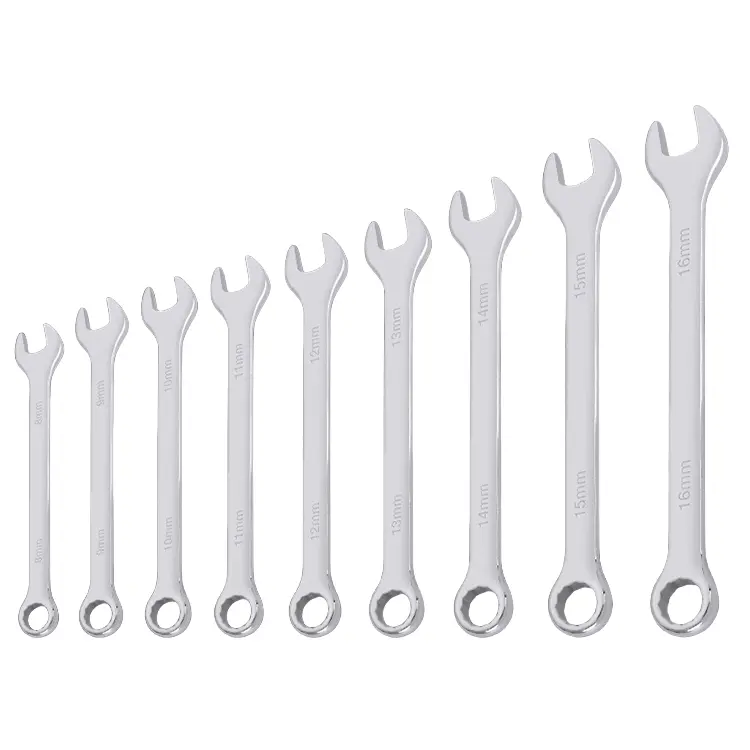Hand wrenches are among the most fundamental tools in any toolkit, whether you’re a professional mechanic or an enthusiastic do-it-yourselfer. These versatile tools are designed to help tighten or loosen nuts, bolts, and other fasteners. This blog post will explore different types of hand wrenches, their specific uses, and how to choose the right one for your project.
Types of Hand Wrenches
- Open-End Wrenches
- Open-end wrenches have a U-shaped opening that fits around two parallel sides of a nut or bolt head. They are particularly useful when working in tight spaces where other wrenches might not fit.
- Box-End Wrenches
- Box-end wrenches enclose the entire head of a nut or bolt, providing more torque and reducing the risk of rounding off the edges. These are ideal for applications requiring high precision and force.
- Combination Wrenches
- Combination wrenches feature an open end on one side and a box end on the other. This dual design makes them incredibly versatile, allowing users to switch between ends depending on the task at hand.
- Adjustable Wrenches
- Also known as crescent wrenches, adjustable wrenches can be adjusted to fit various sizes of nuts and bolts. Their flexibility makes them handy for projects where multiple sizes of fasteners are involved.
- Allen Wrenches (Hex Keys)
- Allen wrenches are L-shaped bars designed to drive screws and bolts with hexagonal sockets. They come in both metric and imperial sizes and are commonly used in furniture assembly and bicycle repairs.
- Torque Wrenches
- Torque wrenches allow you to apply a specific amount of torque to a fastener, which is crucial in automotive and mechanical engineering to ensure parts are tightened to the correct specifications.
Choosing the Right Hand Wrench
Selecting the appropriate wrench depends largely on the task at hand. Consider the following factors:
- Size and Type of Fastener: Ensure the wrench matches the size and type of fastener you’re working with.
- Space Constraints: In confined areas, open-end or combination wrenches may be more suitable.
- Precision Required: For tasks demanding exact torque settings, use a torque wrench.
- Material Quality: Opt for wrenches made from durable materials like chrome vanadium steel for longevity and performance.
Maintenance Tips
To keep your hand wrenches in top condition, follow these maintenance tips:
- Clean your wrenches after each use to remove dirt and debris.
- Store them properly in a tool box or on a tool rack to prevent damage.
- Regularly inspect wrenches for signs of wear or damage, replacing them if necessary.
In conclusion, understanding the types of hand wrenches available and how to select the right one for your project can significantly enhance your efficiency and safety. Whether you’re assembling furniture, repairing your car, or tackling any other project, having the correct wrench ensures the job gets done right. Happy wrenching!

